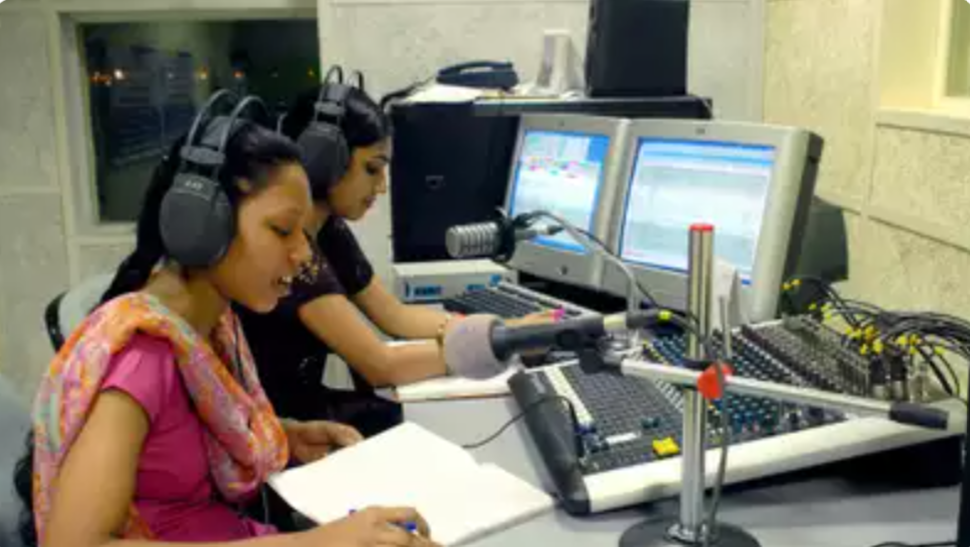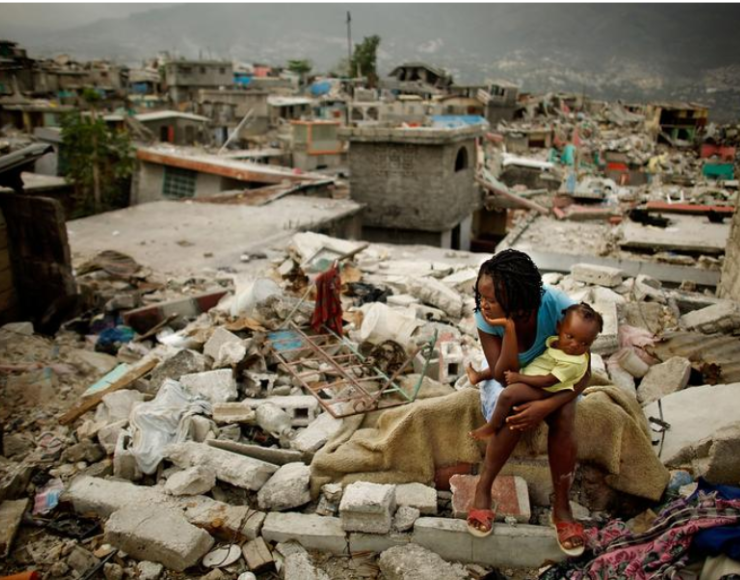Haryana’s Radio Revolution: Empowering Women’s Voices

Located in the heart of Haryana, the “Alfaz-e-Mewat” community radio station is sparking a revolution. With millions of listeners from the Nuh district of India, where female education is denied, and violence against women is rampant, this radio station is the voice of change.
Women gather to listen to broadcasts covering important topics such as mental health, hygienic service, domestic violence, and other relatable matters. The radio host, fluent in Urdu, initiates conversations and group therapy sessions, allowing women to share their personal stories. “Alfaz-e-Mewat” defies the digital age’s trends by remaining the preferred medium for many in India. It’s played a crucial role in shifting the attitudes towards critical issues that need to be discussed such as Covid vaccinations, women’s education, gender empowerment, and more.
Bhagwan Devi, a woman inspired by the radio station, went on to lead a campaign to build indoor toilets in her village, which replaced the use of open fields. This was a significant change in a region where women traditionally ventured out only when men were asleep. For Bhagwan Devi, the radio station was a catalyst, allowing people to realize the significance of women’s equal rights, and was a leading step in promoting gender equality.
What sets “Alfaz-e-Mewat” apart from other radio stations prevalent in India is how the station actively engages with the community members. Listeners like Bhagwan Devi, who have been provided with a radio, are automatically tuned into the station, ensuring a clear and uninterrupted connection. Community members are also free to participate in advisory committees that influence most of the station’s content.
The “Alfaz-e-Mewat” was originally initiated by the nonprofit S.M. Sehgal Foundation in 2012 with government funding. In the beginning, the primary topics they focused on were general and less focused, like water conservation and agricultural practices. The station, however, soon recognized the need to empower women in order to make better decisions about their lives, considering the fact that women played a significant role in farming which provided for the population in Haryana.
Female literacy was only about a third of the country, and girls often ate the leftovers of the men in their households. In contrast to this, the station provided a lifeline for women facing normalized abuse. Psychologists and researchers such as Subhi Agarwal offered professional insights and support, helping women realize the importance of discussing their problems and breaking the silence around abuse.
“I got courage after listening to the program on women’s violence,” said Zeenat, whose husband deserted her. The radio gave her the motivation and proper instructions on how to proceed forward with her situation. She proceeded to go to court and won a $200 settlement. Zeenat says, “When I told my story, they told me how I could take a stand.” Surprised by Zeenat’s bold actions, other women who could relate to her were inspired to do the same.
“Alfaz-e-Mewat” now broadcasts 13 hours of content daily in multiple languages native to India including Hindi, Urdu, and Mewati, reaching 225 villages in the entire Mewat region. The station offers a “radio school” for undereducated and curious children, including programs such as live interaction with experts, informative programs, and folk songs.
Through the radio station, women have found the strength to assert their rights and influence real changes in their communities. They are capable of speaking for themselves and voicing their thoughts. In a region where women’s voices were often silenced, “Alfaz-e-Mewat” gives them a platform for empowerment, hope, and transformation.
Prakruti is a current staff writer for The Talon. Besides writing, she loves to listen to music, read old literature, and embroider.







